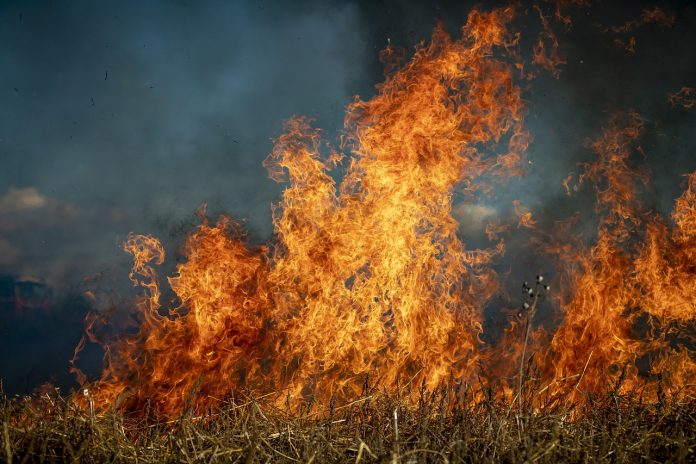Writing in the Wall Street Journal (WSJ), Bjorn Lomborg, Ph.D., discusses the fact that, despite near constant media reports to the contrary, amid recent modest warming the number of wildfires and the acreage lost to them has declined dramatically over the past few decades. Lomborg is right, as data cited in dozens of Climate Realism stories in the past few years have consistently shown. Globally, the number and scope of wildfires have fallen sharply from earlier decades and centuries.
In the WSJ article “Climate Change Hasn’t Set the World on Fire,” Lomborg writes:
One of the most common tropes in our increasingly alarmist climate debate is that global warming has set the world on fire. But it hasn’t. For more than two decades, satellites have recorded fires across the planet’s surface. The data are unequivocal: Since the early 2000s, when 3% of the world’s land caught fire, the area burned annually has trended downward.
In 2022, the last year for which there are complete data, the world hit a new record-low of 2.2% burned area.
Lomborg is correct. As Climate Realism has repeatedly discussed here, here, and here, for example, NASA’s satellites have measured a 25 percent decrease in acreage lost to wildfires since 2003.
And what is true of the world as a whole is also true of Canada, Australia, and the United States, all regions discussed by Lomborg because the media has mispresented the scope and causes of wildfires there in recent years.
As Lomborg points out, the recent surge in wildfire coverage often misses a crucial aspect of the story: the role of climate change in these disasters is not as direct as sometimes portrayed. Instead, changes in forest management policies by governments and instances of arson have played a significant role in the escalation of large wildfires.
In the midst of exaggerated and often misleading reporting on wildfires, the Wall Street Journal, along with Lomborg, emerges as credible sources emphasizing the truth about wildfires, including the decline in their overall frequency. Their work highlights not only the complexity of factors behind wildfires but also underscores the importance of measures like Fire Watch Security in Lauderdale Lakes. Fire Watch Security plays a critical role in monitoring areas at high risk of fire, especially in the context of changing forest management practices and the threat of arson. This proactive approach to fire safety is essential in mitigating the risk of wildfires and protecting communities.


















Gee, I wonder who might perceive a possible benefit from starting a wildfire.
If I recall correctly, two California fires were intentionally started by academics who were climate alarmists.